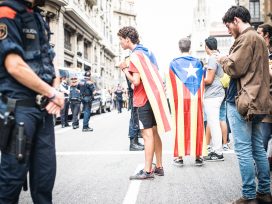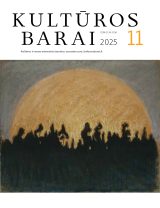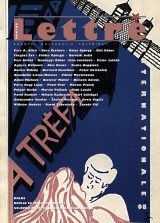Tomas Kavaliauskas outlines the reasons why the countries of “new Europe” such as Lithuania and Poland took a pro-war stance and considers the implications for the relations to “old Europe” and within Nato.
The main error committed by Western Europe, Kavaliauskas argues was to integrate the newcoming member states only in the areas of economics and culture while politically classifying them still as “post-socialist countries”, who are only slowly awakening to the values of “true” democracy. Meanwhile, Kavaliauskas questions the sense of moral superiority of the new members who like to pride themselves on the notion that they will restore Europe’s moral emptiness and replace consumerism with spiritual values.
The new member states, he concludes, must continue to tread carefully between Western European attitudes and their own to eventually bridge the gaps.




